
It avoids overcrowding a single agent with 30+ tools, by having a single generic API tool, or code step, or LLM step etc that the agent can figure out how to use.
When the API changes, the only thing you need to change is the documentation in the agent's knowledge, instead of any of the 30+ tools that are affected by the change.
After cloning the multi-agent MRP workforce below and connecting our accounts to each tool, we were able to get the workforce to do the following, without building a single custom tool 🤯
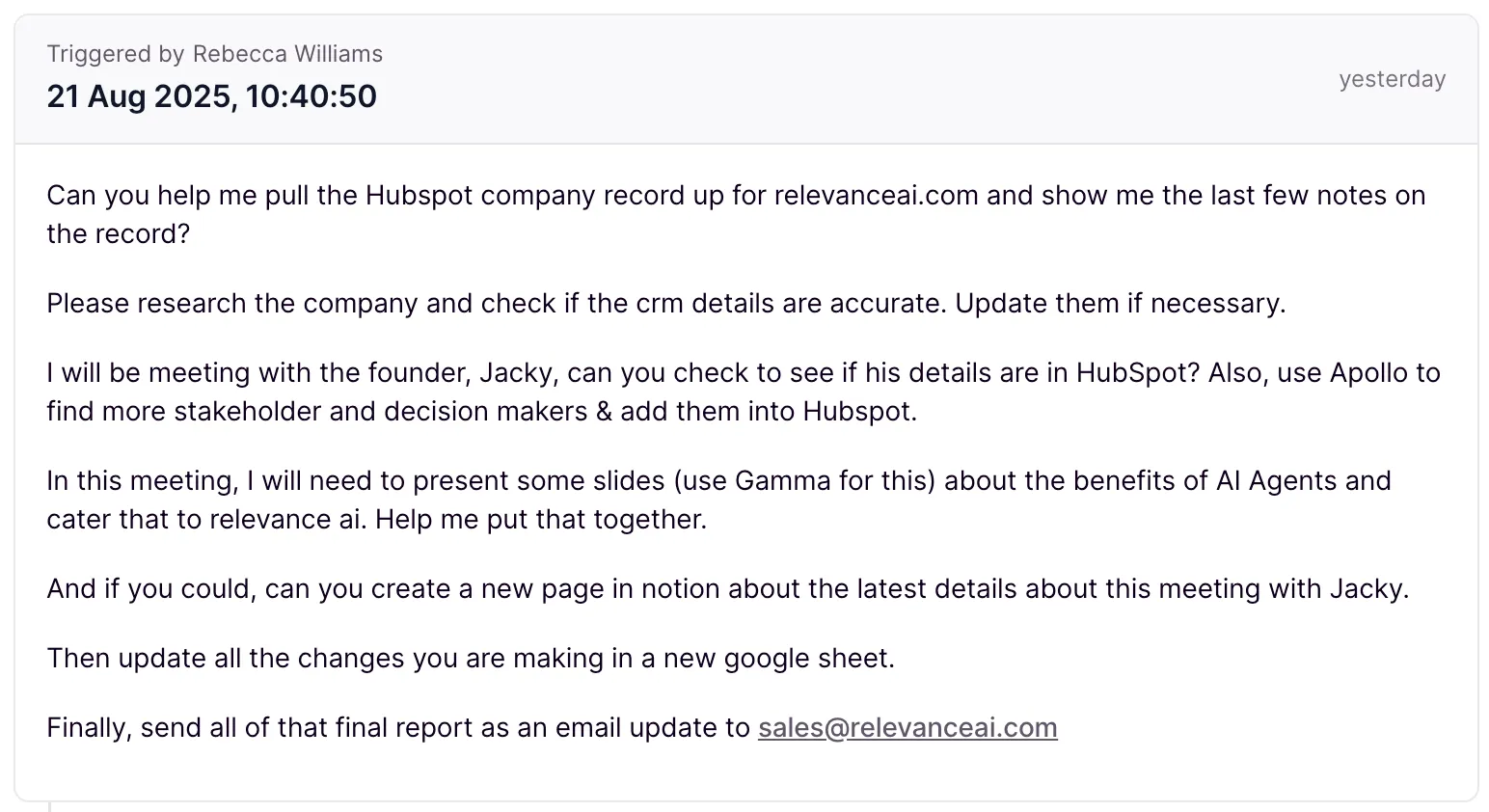
Then, the workforce did all of the work below. This would have taken weeks of work to build out all of the individual tools for each integration previously. All we needed to do was connect our accounts and write a task prompt. That was it.

The MRP manager started by delegating to the research assistant to find out everything it could about Relevance AI, using two simple tools: Google Search and Extract Website Content.
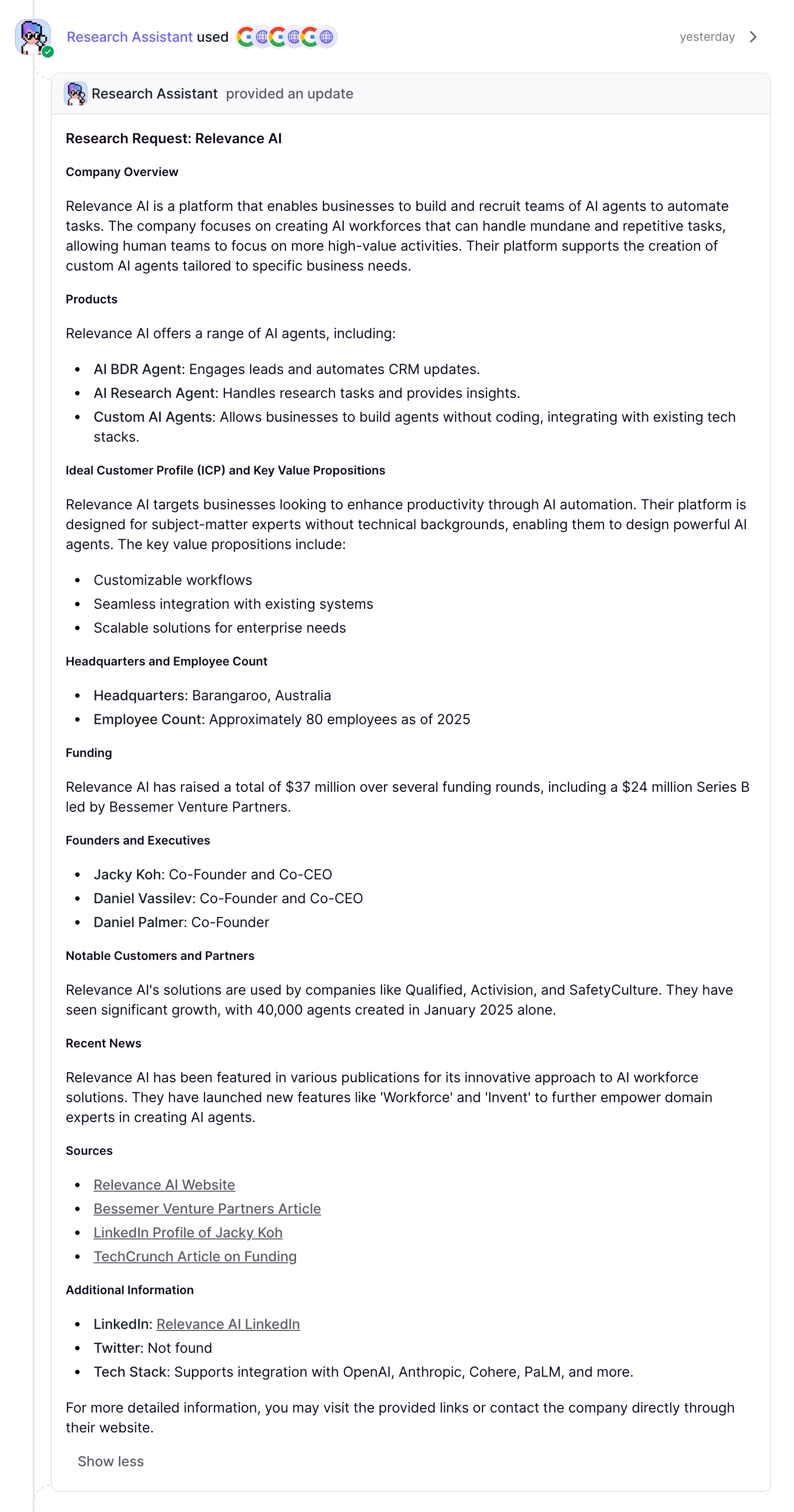
Then the MRP Manager asked the HubSpot assistant to retrieve all of the records in HubSpot that are related to Relevance AI, it's founders, engagement history and key stakeholders.
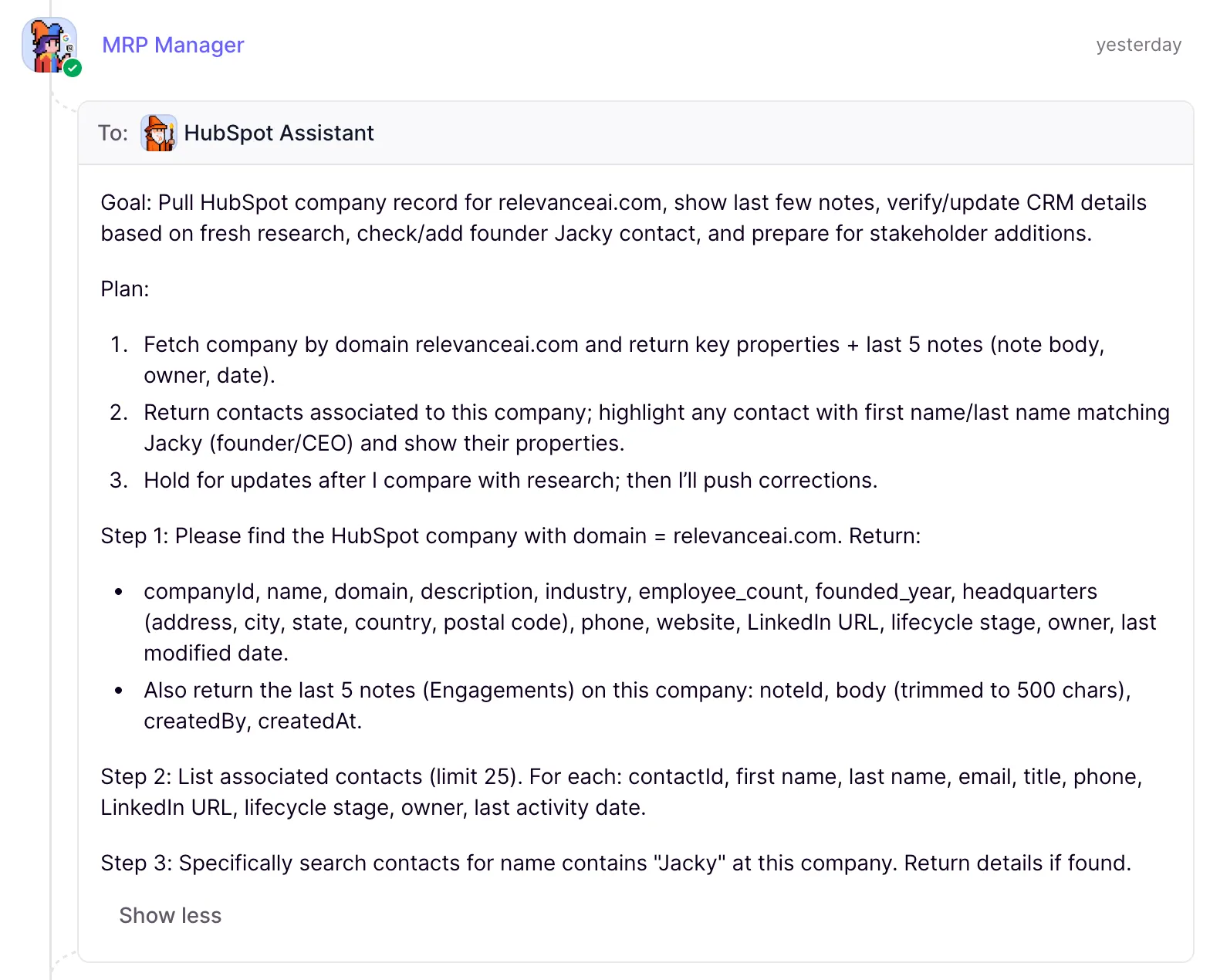
The HubSpot assistant (ahem, wizard) did a very good job of this:
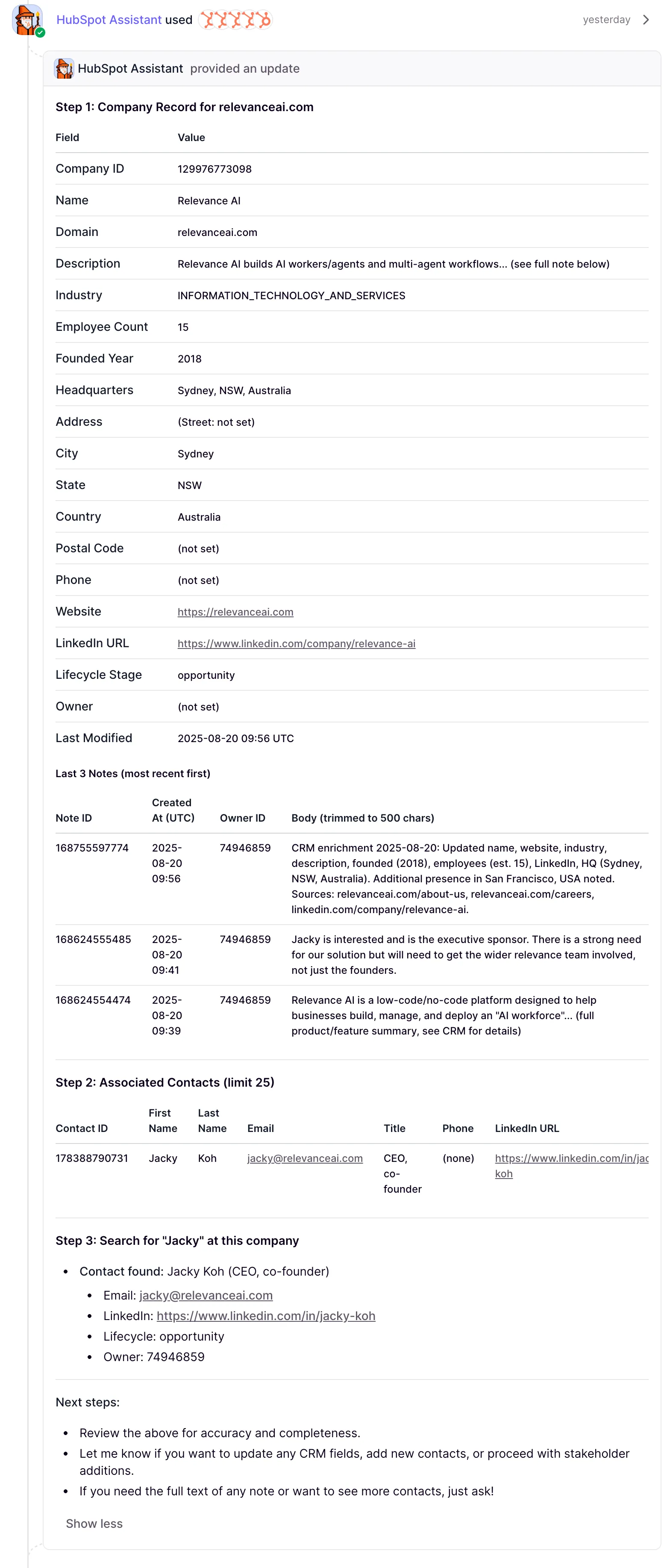
Next, the MRP manager asked the Brandfetch assistant to fetch all of Relevance AI's brand assets. It found logo files in different formats, brand colour codes, social profiles and more.
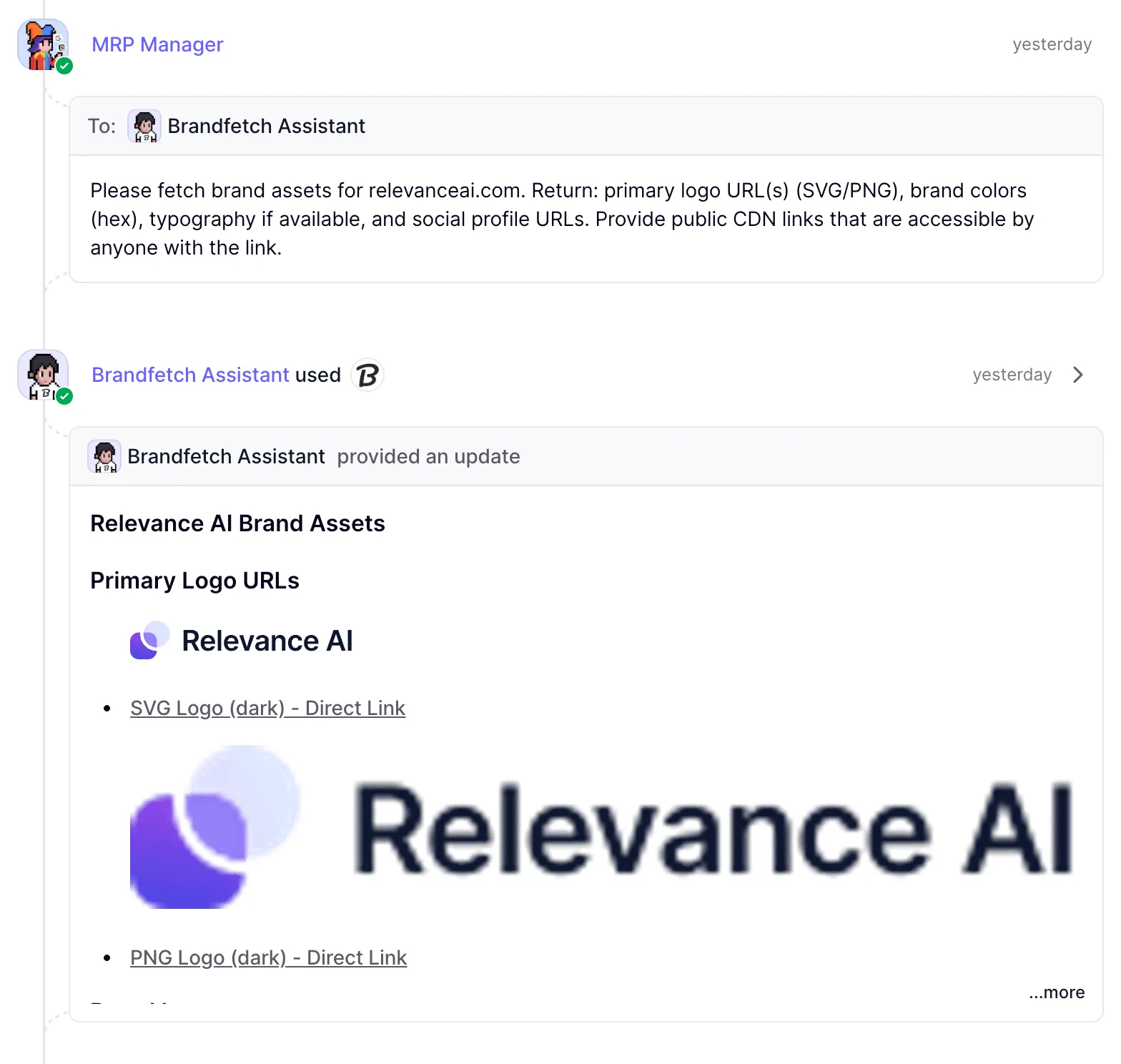
After that, MRP manager asked the Apollo Assistant to get all of the key stakeholders and decision makers from Relevance. It was able to retrieve a much more accurate and recent list than what was already stored in the CRM about them.
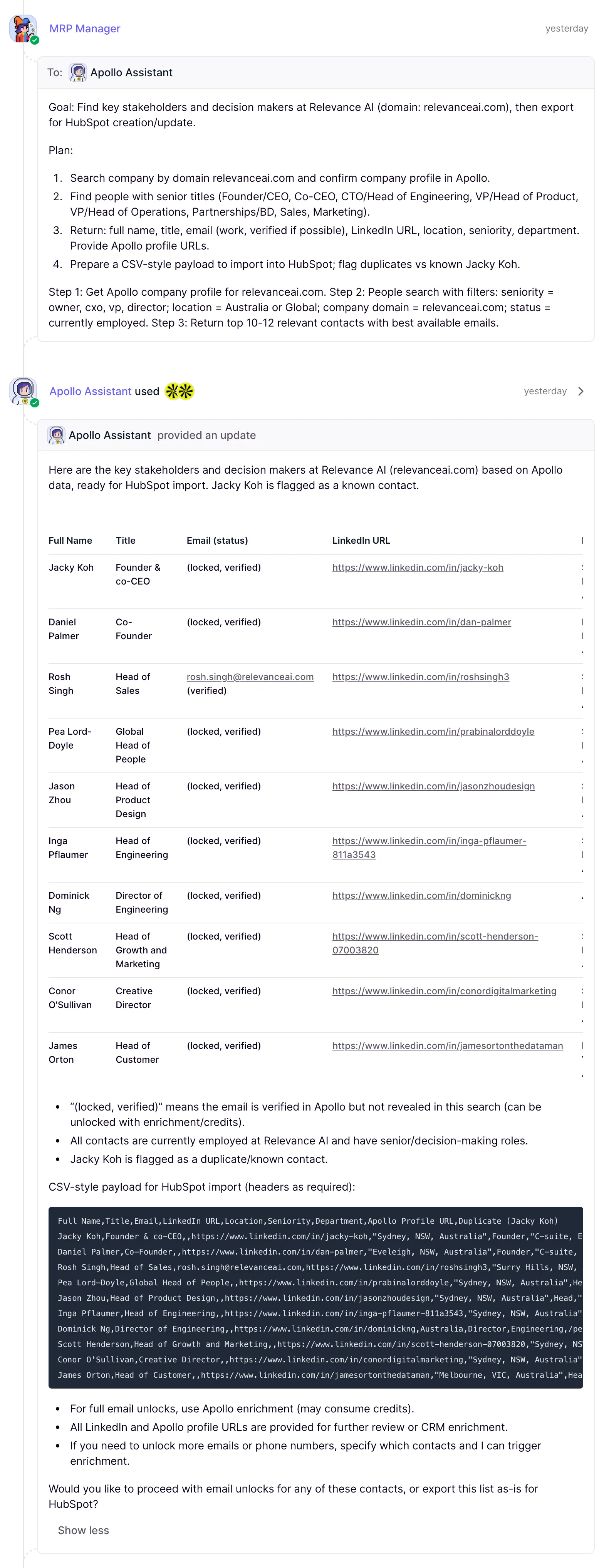
Next, the HubSpot assistant was able to update the CRM with all of the new information about the company and stakeholders that were discovered using all of these different integrations. With that, the first three requests the user made right at the start have been complete. Four more remaining.
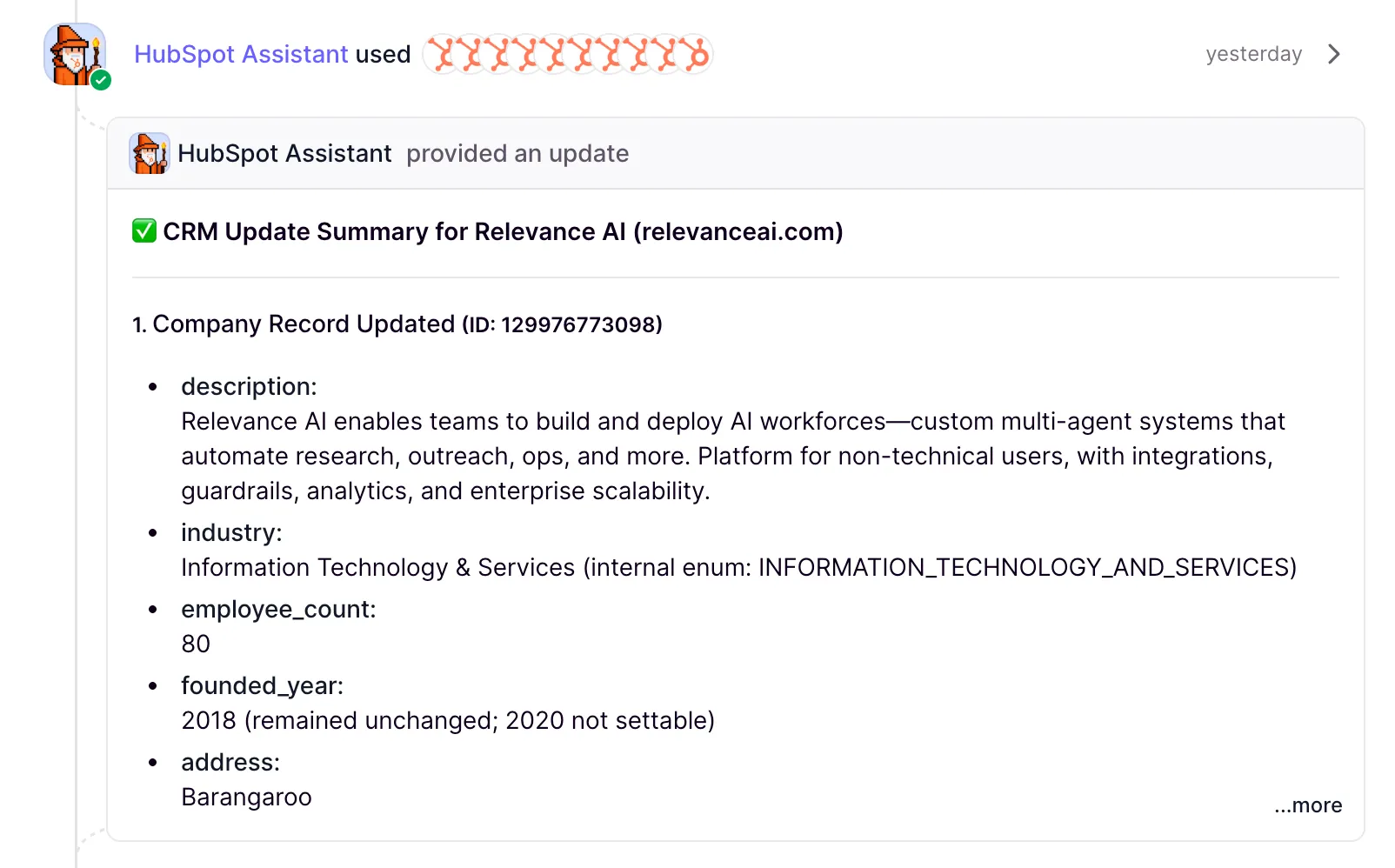
Now, the MRP agent asks the Gamma assistant to create a slide deck for the meeting with Jacky Koh, one of the founders of Relevance AI. It asked it for 14 slides, with a mix of visuals, diagrams and non technical language.
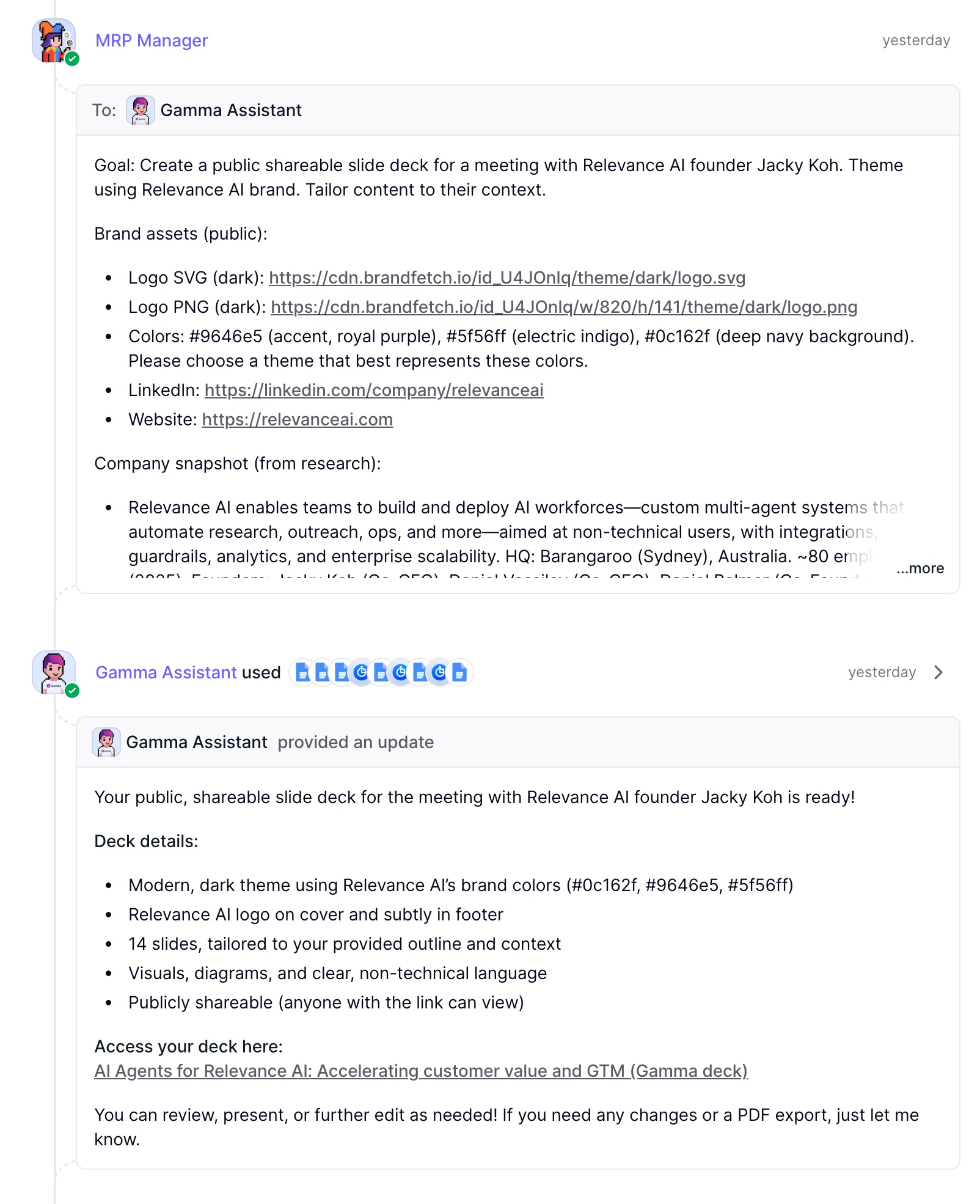
Here are some of the slides in the 14-paged slide deck it created. Gamma is amazing. With that, the users third request for a slide deck that communicates the benefits of AI agents and cater to Relevance AI is complete.
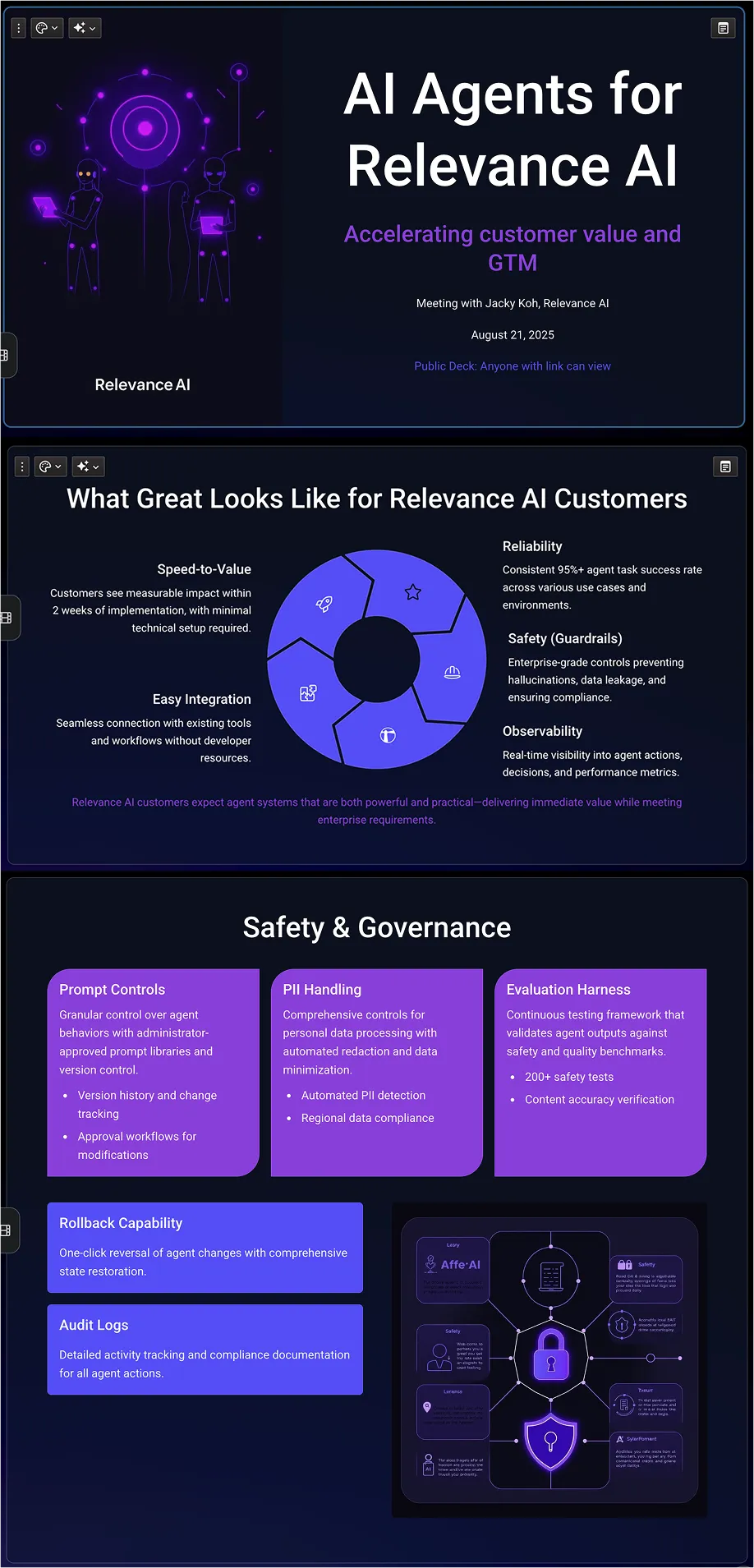
Next, the MRP agent delegates to the Notion assistant, to create a page in Notion to prepare all of the latest details about Relevance AI ready for the meeting. The Notion Assistant failed in this case, because it required a page ID. It didn't stop working though. It carried on and finished the rest of its objectives.
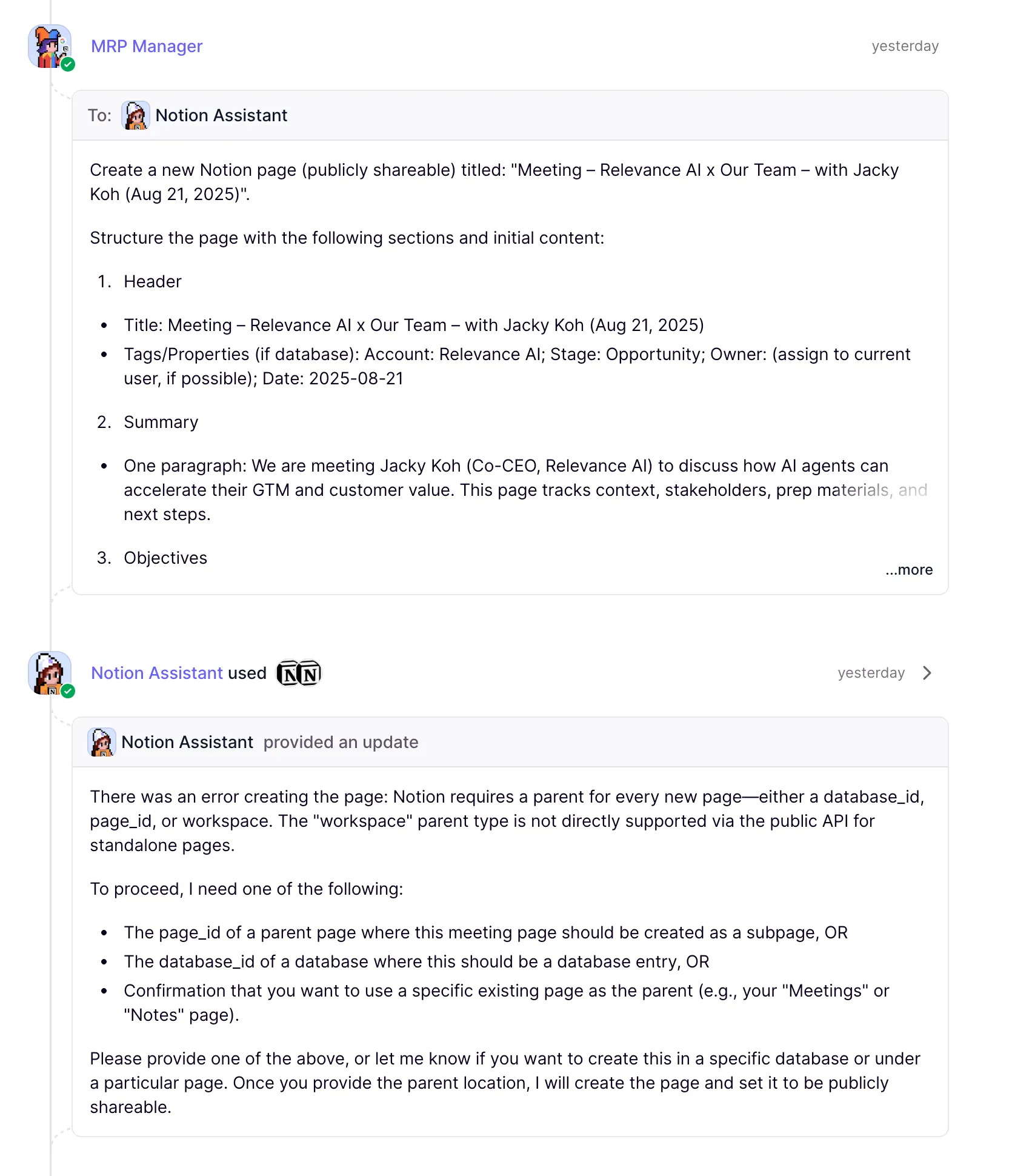
When everything else was done, I sent a follow-up message to the workforce and gave it the correct page ID, which meant it was able to complete it's Notion objective too. I know for next time to give it a page ID, or ask it to pick one itself. The user also requested a spreadsheet containing all of the changes the agent made. So the MRP asked the Google Sheets Assistant to create a changelog spreadsheet.
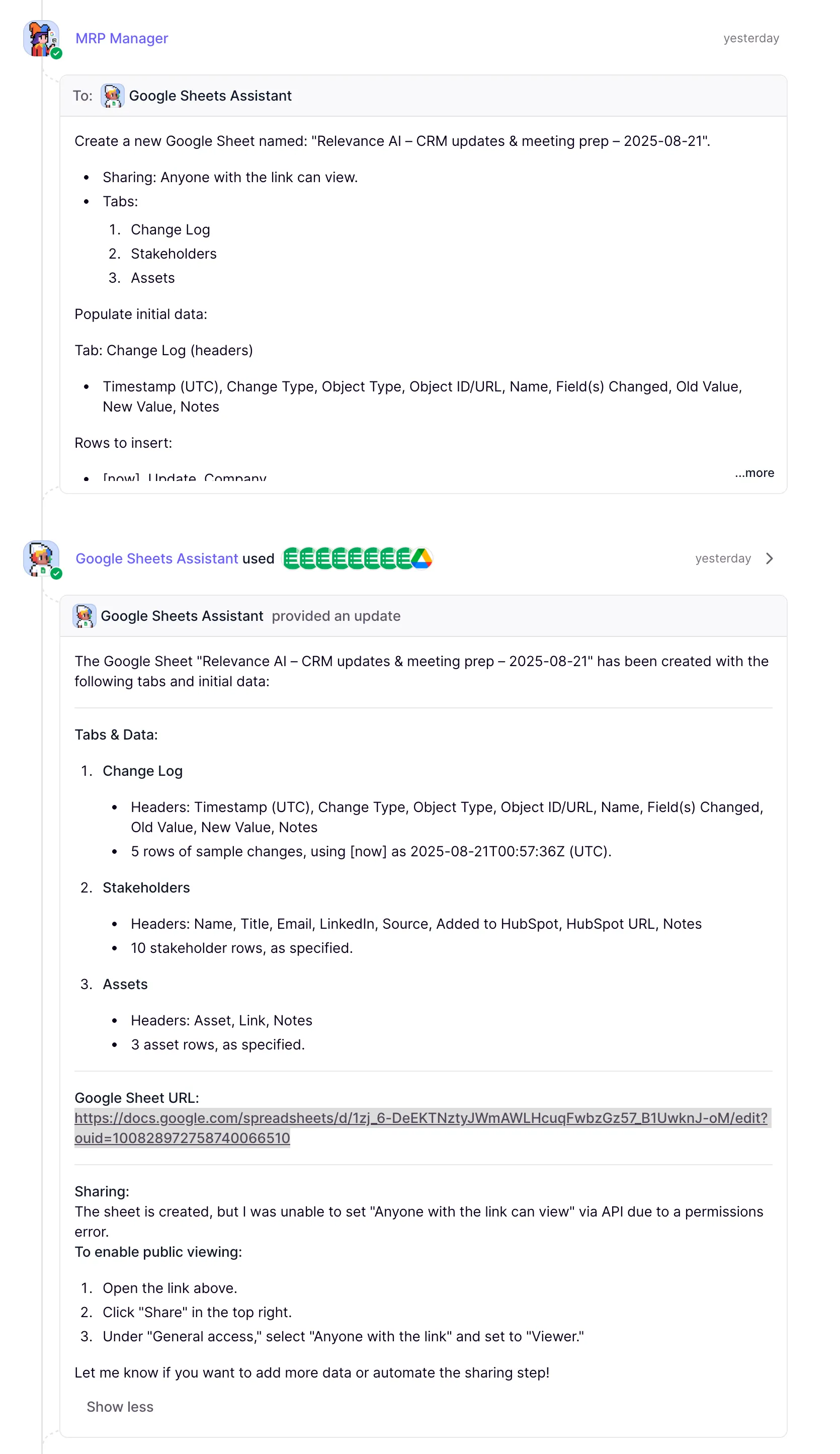
The user also requested a spreadsheet containing all of the changes the agent made. So the MRP asked the Google Sheets Assistant to do that. It created a spreadsheet with three separate worksheets:
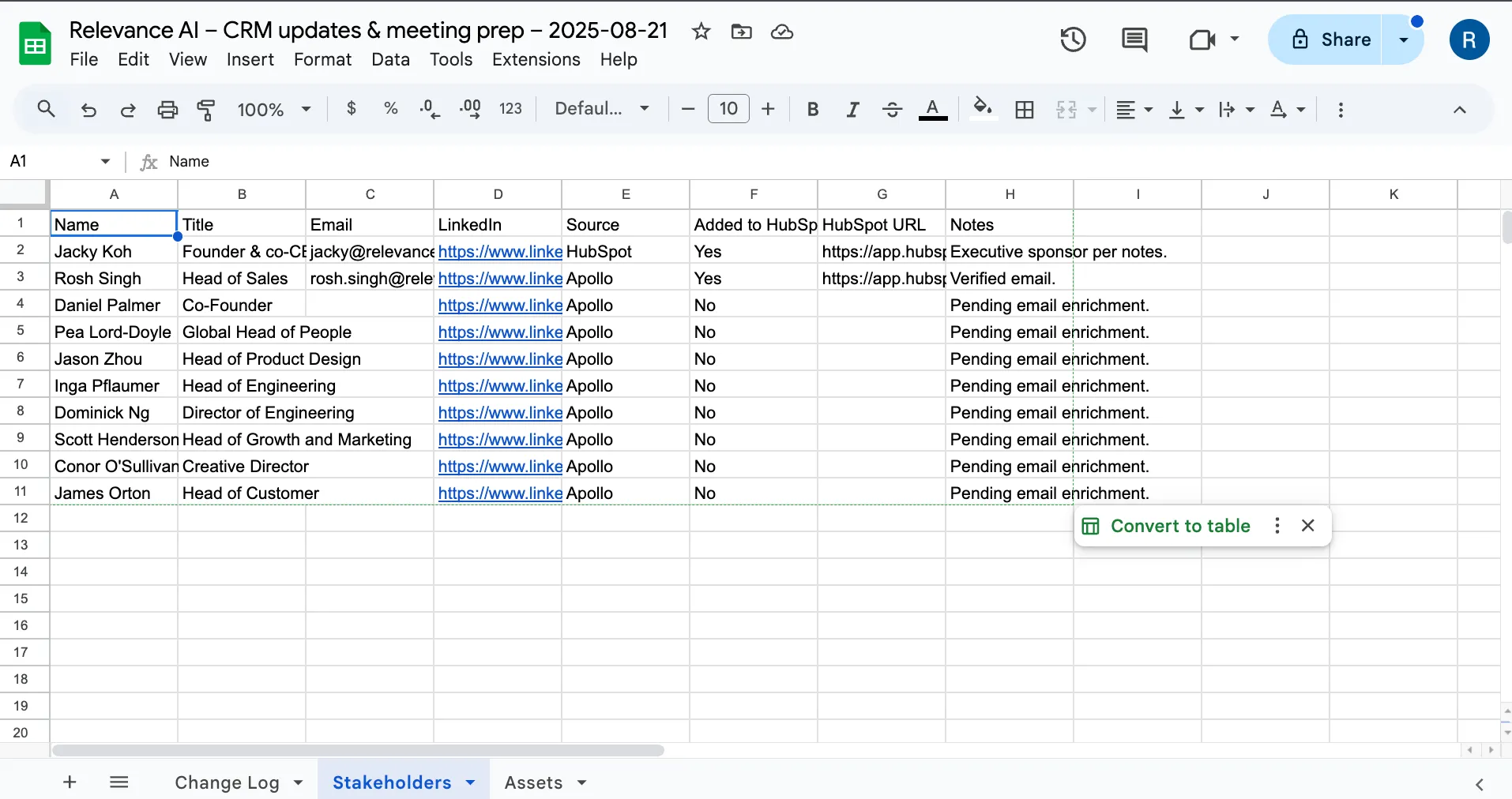
Finally, the MRP agent delegated to Gmail assistant to send an email to the sales team with a summary of research and assets they need to help prep for the meeting.
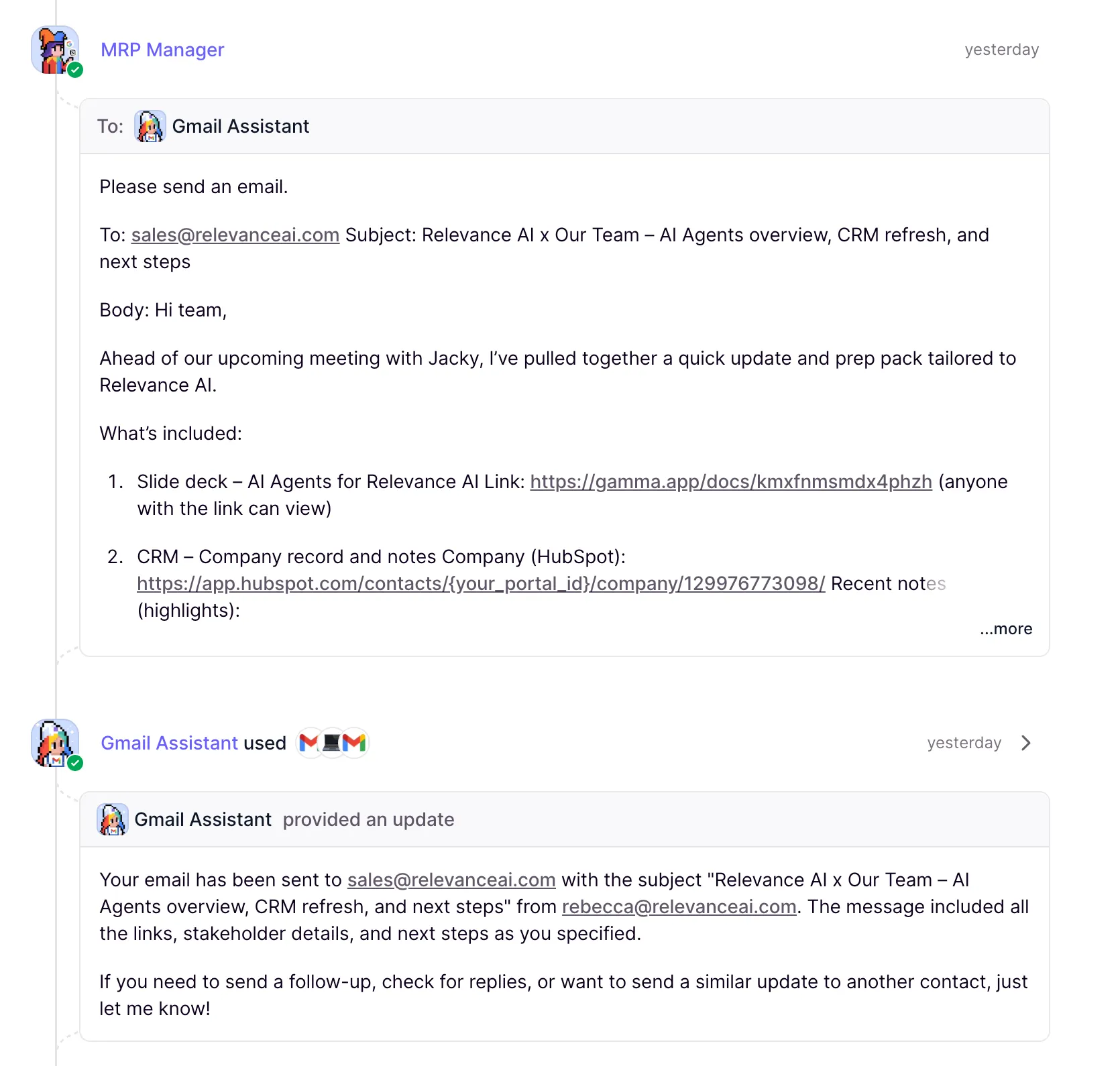
Here is the email (the agent is using my account under the hood, ideally you'd give it its own account. We've done that in our prod version):
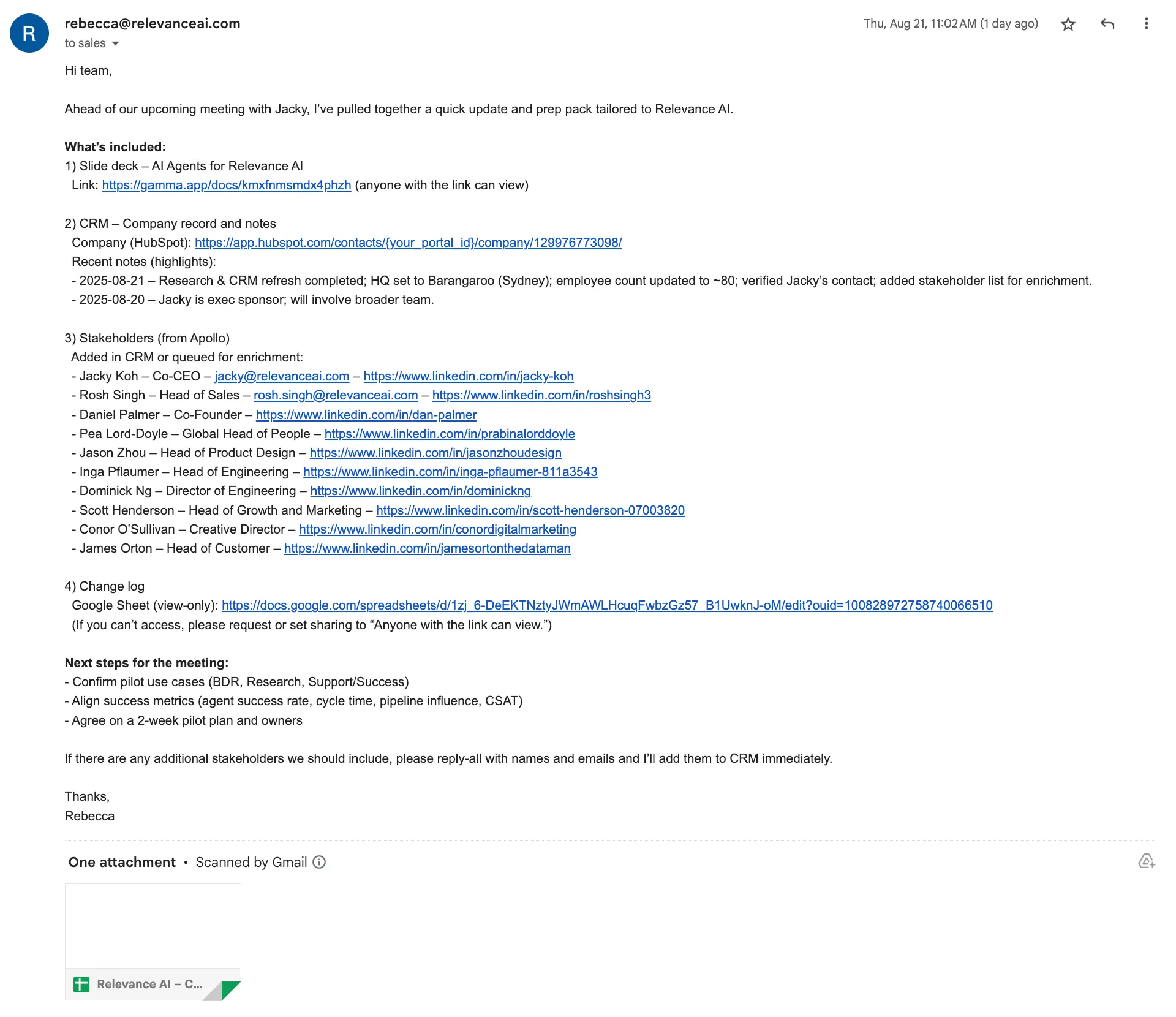
The last thing the MRP did, was summarise what it's original goals were, everything it did got done along with links to all of the assets, as well as direct actions points for the user to complete (provide Notion page ID), as well as suggestions for other things it could do if the user wants, like extra enrichment for each individual stakeholder.
You need to try this!



























